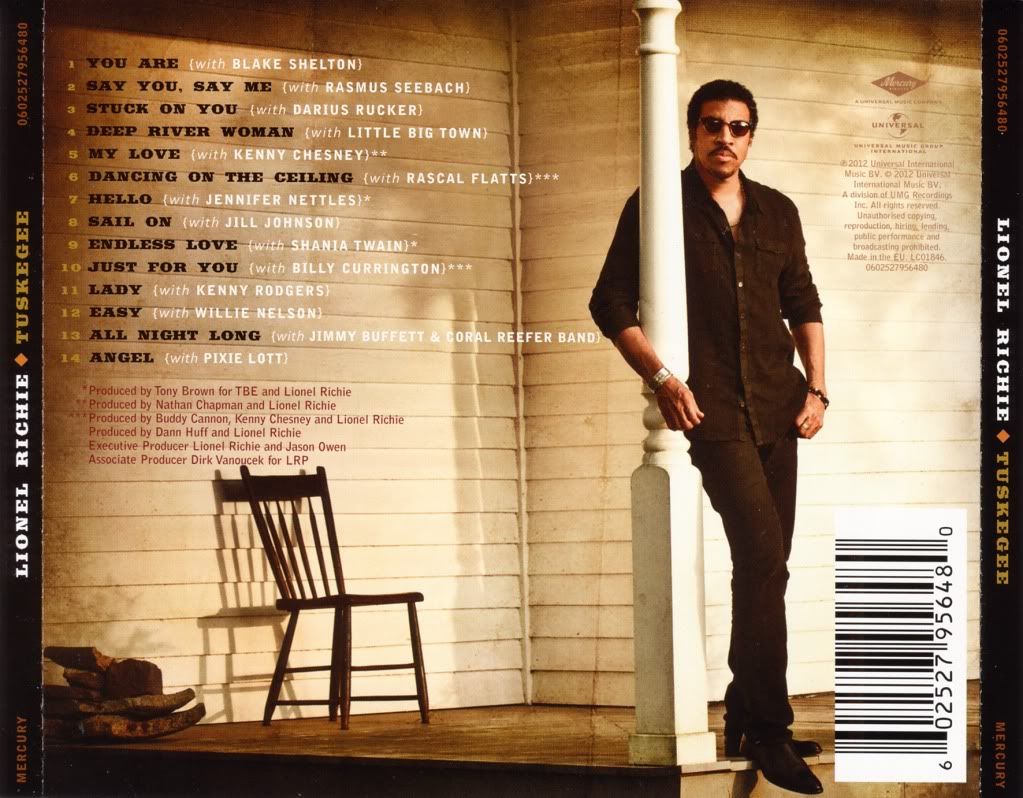
Lionel Richie Tuskegee Album Download Zip
Lionel Brockman Richie was born on June 20, 1949 in Tuskegee, Alabama. He grew up in the Tuskegee Institute campus where his parents and grandparents had been working. During his study at the local college, Lionel joined The Commodores, a band that gained a momentum in the late seventies. As a member of this formation, he played saxophone, performed backing vocals and co-wrote some songs. Although, The Commodores had developed friendly relations inside the group, Richie had to quit. A new theory of urban design christopher alexander pdf.
This happened after he succeeded significantly as a producer and author of several big hits by the outside performers, which made him the most interesting person for the press compared to the rest of The Commodores. Since that moment, Lionel has been working as a sole artist. Ill gates template rar. He decided to stay with the Motown label, a long time partner of The Commodores.
Lionel Richie has had an impressive career. For decades, he's thrilled fans with his music across a number of genres. His Can't Slow Down was a massive hit in 1984 and one of the best albums of the year. Back to Front is the first compilation album by American singer Lionel Richie, which was released on May 5, 1992. It contains songs from both his successful solo career and as part of the band the Commodores, along with three new tracks (1-3).
He released his first album, Lionel Richie, in 1982 to make a huge step forward. The record ranked third in the pop charts and sold a million copies. It had three songs, including one of the artist’s most famous tracks Truly, in Top 5. The follow-up Can't Slow Down made him an even bigger star. It featured as many as five tracks to enter Top 10. Two of them, All Night Long (All Night), and Hello, became number one hits. Eventually, this studio work was distributed to an amount of nine million CDs and received Grammy’84 as Best Album of the Year.

Richie’s reputation earned him an invitation to perform at the closing ceremony of the Olympic Games in Los Angeles in 1984. In 1985, Lionel Richie joined Michael Jackson to participate in the grand charity project USA for Africa. Their single We Are the World raised millions of dollars to battle famine in the African countries. In a short while, Richie came back to the tops of the charts with the ballad Say You, Say Me, recorded for White Nights, yet not featured on the official soundtrack. 1986 saw the artist release one more studio work, Dancing on the Ceiling. Although it did not match the results of the previous albums, the new record also had considerable sales.
However, Lionel’s uncontrolled deviation towards slow tempo songs hindered his growth as a musician. In 1987, he unexpectedly decided to take a break. First, he was exhausted after the decade of laborious and high-quality studio activity. Secondly, the moment of glory was the best time to quit. Richie broke the silence only in 1992 as he came up with the compilation Back to Front including both his own hits and some songs of the Commodores. By the time of his next album issuance in 1996, Richie had gone through his father’s death and his marriage collapse.